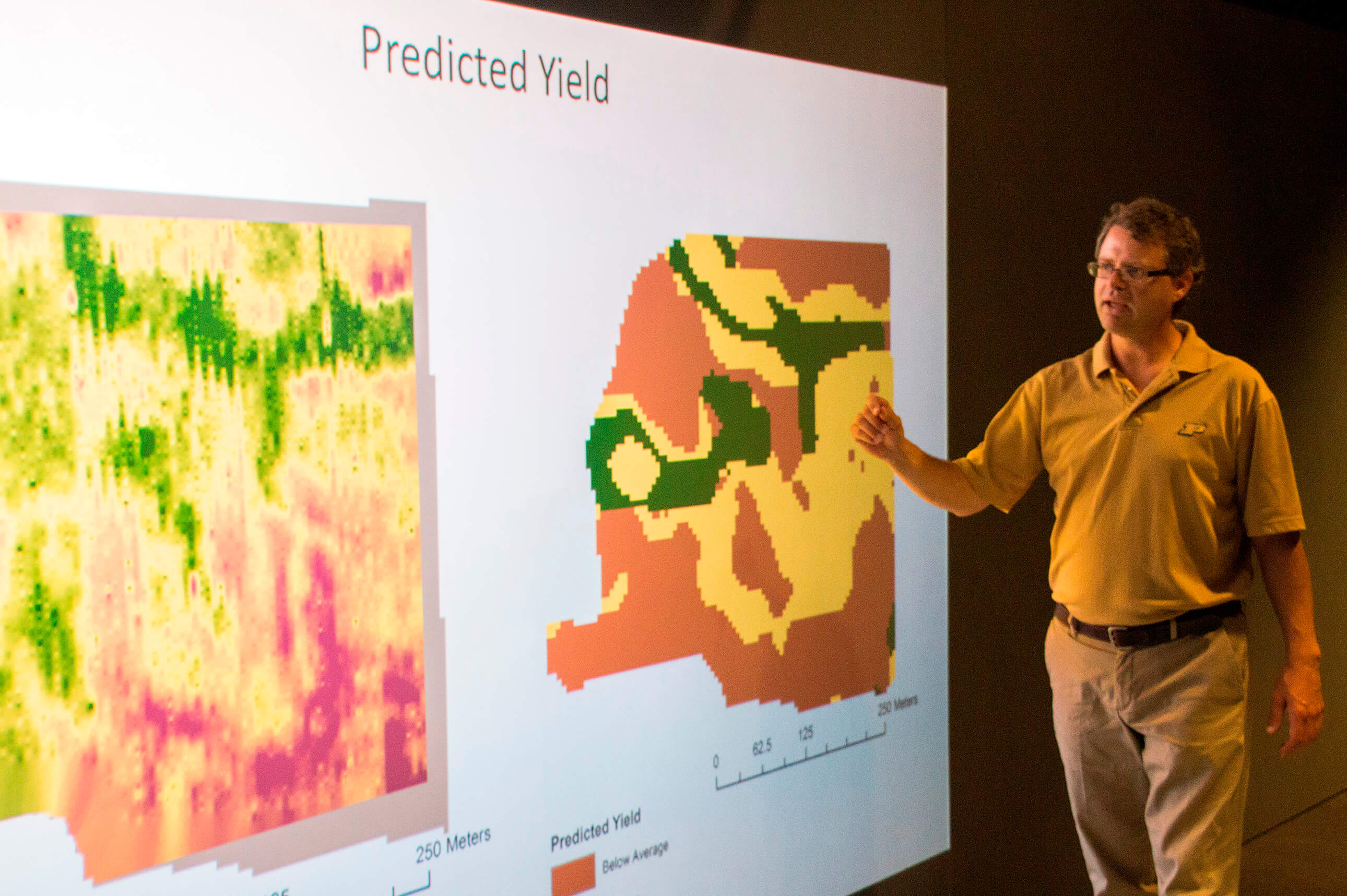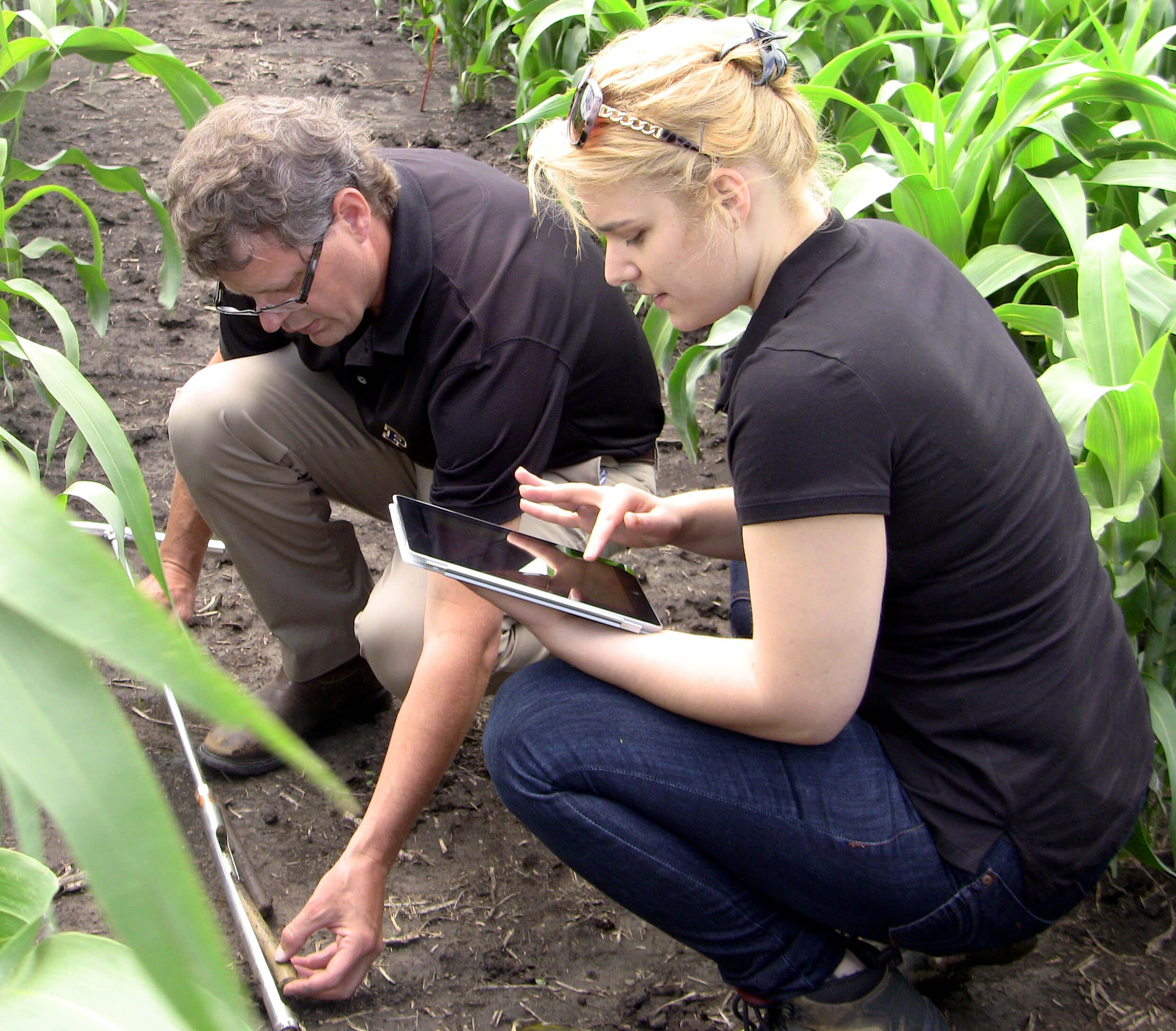West Lafayette, Indiana, USA
September 17, 2014

Phillip R. Owens, Purdue University associate professor of agronomy, demonstrates how a farmer's field can be mapped to show predicted crop yield with his technology. His functional soil mapping technology is available for licensing and developing through the Purdue Office of Technology Commercialization. (Purdue Research Foundation photo)
A Purdue University agronomist has developed soil-mapping technology that provides visual information about soil functionality and productivity, which could increase profitability for farmers and growers as they cultivate their crops.
Phillip R. Owens, associate professor of agronomy in Purdue's College of Agriculture, said the U.S. Department of Agriculture provides soil survey maps of the contiguous 48 states. These maps only classify and name soil types as broad units based on their appearance, while Owens' functional maps provide a broader spectrum of highly detailed information.
"These functional maps show properties like organic carbon content, clay content, the location of water tables, the native nutrient potential, catatonic exchange and more," he said. "They also show categorized information like the highest- and lowest-yielding areas, how much water the soil would store after a rainfall event, and how fast a farmer could expect runoff. This information could impact how farmers choose to manage their land and their crops in order to decrease costs and increase profits."
A video about the soil mapping technology is available at http://youtu.be/7alAHvhBZ9Q.
Jenette Ashtekar, a doctoral graduate from Purdue's College of Agriculture, worked with Owens to create the functional soil maps by using algorithms that capture the important relationships between the landscape, water and soil development.

Phillip R. Owens, from left, Purdue University associate professor of agronomy, and doctoral graduate Jenette Ashtekar compare a soil sample in an auger to a functional soil map on a digital tablet. The functional soil mapping technology is available for licensing and developing through the Purdue Office of Technology Commercialization. (Purdue Research Foundation photo)
"The computer algorithms that we developed exploit the relationship between soil properties and the landscape. We then use the same algorithms to determine precise locations in the fields to sample so we can create the best possible map with a limited number of samples," she said. "After sampling, we use Geographical Information Systems, or GIS, technology to develop beautiful, color-image maps that farmers can use in the field to inform their management decisions."
The Purdue Office of Technology Commercialization has filed a patent application on the technology, which was developed with funding from the USDA and Purdue. Owens is looking for venture capitalists or agriculture firms to license and scale up the technology for the marketplace.
"The maps currently are in GIS format, but they can be delivered multiple ways," he said. "Ultimately farmers will want the information on their tractors so they can make decisions about where to plant, what seeding rate to use, where and how much to fertilize or more as they drive across the field."
About Purdue Office of Technology Commercialization
The Purdue Office of Technology Commercialization operates one of the most comprehensive technology-transfer programs among leading research universities in the U.S. Services provided by this office support the economic development initiatives of Purdue University and benefit the university's academic activities. The office is managed by the Purdue Research Foundation, which received the 2014 Incubator Network of the Year from the National Business Incubation Association for its work in entrepreneurship. For more information about funding and investment opportunities in startups based on a Purdue innovation, contact the Purdue Foundry at foundry@prf.org.